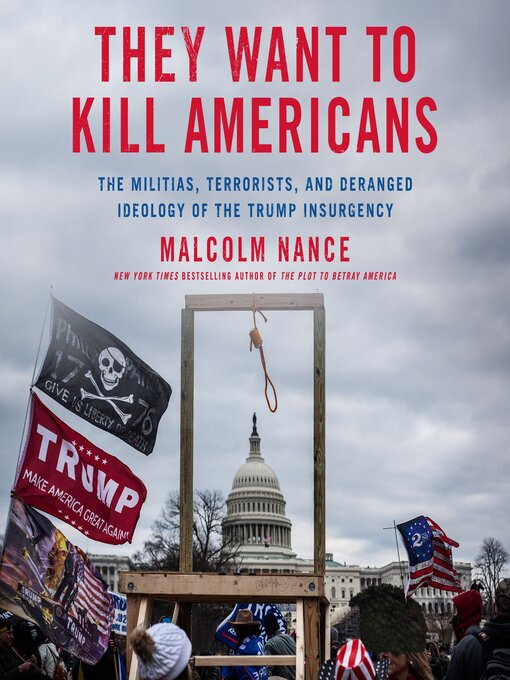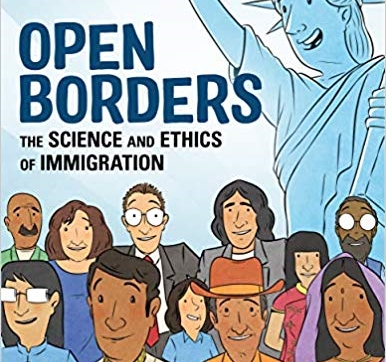Author: Corey Robin
Title: The Reactionary Mind: Conservatism from Edmund Burke to Donald Trump
Narrator: Mike Chamberlain
Publication Info: [Old Saybrook (Conn)] : Tantor Audio, 2018
Summary/Review:
Over the past eight years, I’ve heard again and again from Democrats and pundits that Donald Trump is a huge break from the reasonable Republicans they remember working with in decades past. There’s nothing more revolting than hearing yet another Democrat proclaim that we need “a strong Republican party.” I’ve held the contrary belief that Trump exists on a throughline that ties him back on a consistent Republican party ideology dating back at least to Barry Goldwater in the 1960s (and those ideologies drew upon older ideologies of elitism and white supremacy that supported slavery and Jim Crow laws). The thesis of Corey Robin’s book is that this throughline goes back even further to the 18th century British philospher Edmund Burke and others who formed the basis of conservatism in reaction to the French Revolution.
Robin notes that the current Trumpian state of the Republican party is in fact a result of popular Leftist liberation movements in the United States being utterly crushed over the past 40 years. The Republicans chose Trump because they felt comfortable to do so with no constraints from the opposition. This suggests that if Democrats truly want the “old Republicans” back they should end the practice of reaching out to them by moving right and instead embrace radical ideologies.
Some consistent aspects of conservatism that have persisted from Burke through today include:
- a desire to maintain hierarchical structures and opposition to movements of liberation
- borrowing tactics and rhetoric from the Left and bending them towards their own ends
- the perception that conservatism is acting in reaction to a perpetually dominant Left and thus a culture of victimhood even when they fully hold the reigns of power
- blending elitism with populism by making privilege popular
The book is compiled into a series of related essays rather than a straight narrative and some parts are better than others. I found the primer on conservatism in the early chapters to be the most useful. There are also essays on Burke, Friedrich Nietzsche, Friedrich Hayek and the Austrian School of Economics, and Ayn Rand. The final chapter written about Trump during the first year of his administration is hopelessly out of date.
:format(webp):no_upscale()/cdn.vox-cdn.com/uploads/chorus_asset/file/15878049/9780190692001.jpg)
Favorite Passages:
“Though it is often claimed that the left stands for equality while the right stands for freedom, this notion misstates the actual disagreement between right and left. Historically, the conservative has favored liberty for the higher orders and constraint for the lower orders. What the conservative sees and dislikes in equality, in other words, is not a threat to freedom but its extension. For in that extension, he sees a loss of his own freedom. ‘We are all agreed to our own liberty,” declared Samuel Johnson. “But we are not agreed as to the liberty of others: for in proportion as we take, others must lose. I believe we hardly wish that the mob should have liberty to govern us.’ Such was the threat Edmund Burke saw in the French Revolution: not merely an expropriation of property or explosion of violence but an inversion of the obligation of deference and command. ‘The levellers,” he claimed, ‘only change and pervert the natural order of things.'” – p. 8
Conservatism, then, is not a commitment to limited government and liberty – or a wariness of change, belief in evolutionary reform, or a politics of virtue. These may be byproducts of conservatism, on or more of its historically specific and ever-changing modes of expression. But they are not its animating purpose. Neither is conservatism a makeshift fusion of capitalists, Christians, and warriors, for that fusion is impelled by a more elemental force – the opposition of the liberation of men and women from the fetters of their superiors, particularly in the private sphere….
No simple defense of one’s own place and privileges – the conservative, as I’ve said, may or may not be directly involved in or benefit from the practices of the rule he defends; many, as we’ll see, are not – the conservative stems from a genuine conviction that a world thus emancipated will be ugly, brutish, base, and dull. It will lack the excellence of a world where the better man commands the worse.” – p. 16
“There’s a fairly simple reason for the embrace of radicalism on the right, and it has to do with reactionary imperative that lies at the core of conservative doctrine. The conservative not only opposes the left; he also believes that the left has been in the driver’s seat since, depending on who’s counting, the French Revolution or the Reformation. If he’s to preserve what he values, the conservative must declare war against culture as it is.” -. p. 25
“This is one of the most interesting and least understood aspects of conservative ideology. While conservatives are hostile to the goals of the left, particularly the empowerment of society’s lower castes and classes, they often are the left’s best students. Sometimes their studies are self-conscious and strategic, as they look to the left for ways to bend new vernaculars, or new media, to their suddenly delegitimated means.” – p. 46
“But as that sense of conflict diminishes on the left, it has fallen to the right to remind voters that there really are losers in politics and that it is they – and only they -who speak for them. ‘All conservatism begins with loss,” Andrew Sullivan rightly notes, which makes conservatism not the Party of Order, as Mill and others have claimed, but the party of the loser.
“The chief aim of the loser is not – and indeed cannot be – preservation or protection. It is recovery and restoration. That is one of the secrets of conservatism’s success. For all of its demotic frisson and ideological grandiosity, for all of its insistence upon triumph and will, movement and mobilization, conservatism can be an ultimately pedestrian affair. Because his losses are recent – the right agitates against reform in real time, not millennia after the fact – the conservative can credibly claim to his constituency, indeed to the polity at large, that his goals are practical and achievable. He merely seeks to regain what is his…” p. 56
Recommended books:
Rating: ***




:format(webp):no_upscale()/cdn.vox-cdn.com/uploads/chorus_asset/file/15878049/9780190692001.jpg)

